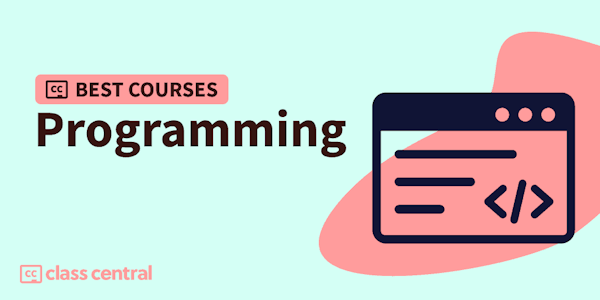Overview
Class Central Tips
Take the next step in your IT professional journey with this self-paced, beginner friendly course! This course covers the basics of software, cloud computing, web browsers, application development concepts, programming languages, and database fundamentals.
You will first be introduced to computing platforms and software applications. You’ll learn about the software lifecycle, software compatibility across different platforms, and software versioning. You'll also learn about installing and managing web browsers, using extensions and plug-ins, and keeping them secure and updated.
Next you will learn about basic programming concepts, coding logic, and the different programming languages like Python. You’ll move on to data and database fundamentals and learn how to use, interface with, access and backup databases.
After completing this course, you'll have a better grasp of software processes and feel more confident about using and securing applications. From mobile phone operating systems to workplace database applications, this course covers a wide range of software. Discover the benefits of cloud-based technologies and see how using the cloud can help businesses create and deploy applications faster.
To solidify your understanding and put your skills to the test, the course includes numerous hands-on labs. It ends with a final project where you’ll showcase your newfound expertise and demonstrate your understanding of software, programming, and databases.
Enroll now to take the next step in developing expertise in IT Fundamentals.
Syllabus
- Computing Platforms and Software Applications
- Do you know which computing platform is on your device? Are you using the right software for the task you're tackling? Are your software versions updated? This course will help you answer these questions by giving you a better understanding of the essentials of software and by showing you how to effectively manage programs and applications. In this module, you will learn about computing platforms, single- and cross-platform software, compatibility across platforms, and software versioning. You will learn about the differences between commercial and open source software, while also learning about different types of software and file formats.
- Fundamentals of Web Browsers, Applications, and Cloud Computing
- Do you know which web browser to use and how to configure it to work best for you? Is your web browser as secure as it might be, and do you need to use browser extensions or plug-ins? Do you want to know what the cloud is really all about, and do you understand how applications that you develop might be used and deployed by your users? This week, you will learn about common web browsers and browser settings, browser security, and browser extensions and plug-ins. You will learn about cloud computing, and you will also learn about application architecture models, application delivery methods, and the software development lifecycle (or SDLC).
- Basics of Programming
- Understanding programming basics and the software development cycle is a crucial part of working with the software. Software developers must know how to code and understand how to identify and fix software problems. When writing code, software creators need to select the right data types, choose the best programming language for the software, and organize code most effectively. This week, you will learn about basic programming concepts and programming language categories. You will learn about programming logic components and organizational techniques.
- Database Fundamentals
- This week you will learn about database fundamentals. During this module, you will learn about the different types of databases as well as the basic concepts of what makes a database a database. Next, you will be taught how to use and manage a database. Finally, you will learn how to interface with a database and know how and why backing up a database is important.
- Final Quiz, Optional Lab, and Honors Project
- In this module, you’ll assess your course knowledge through a final quiz based on the previous four modules.
Taught by
Skills Network




